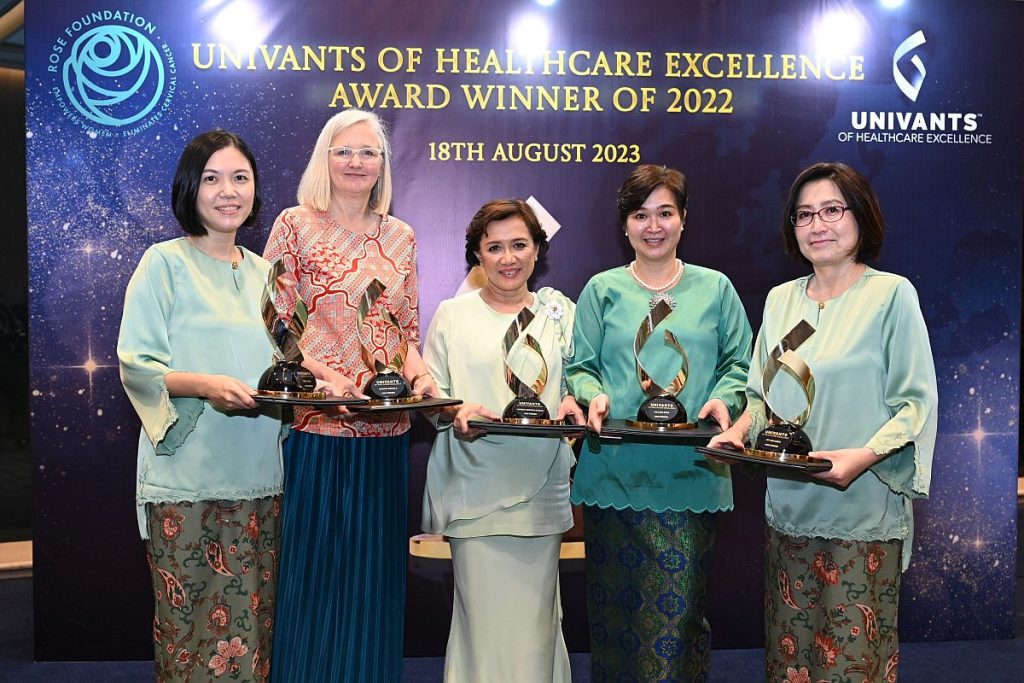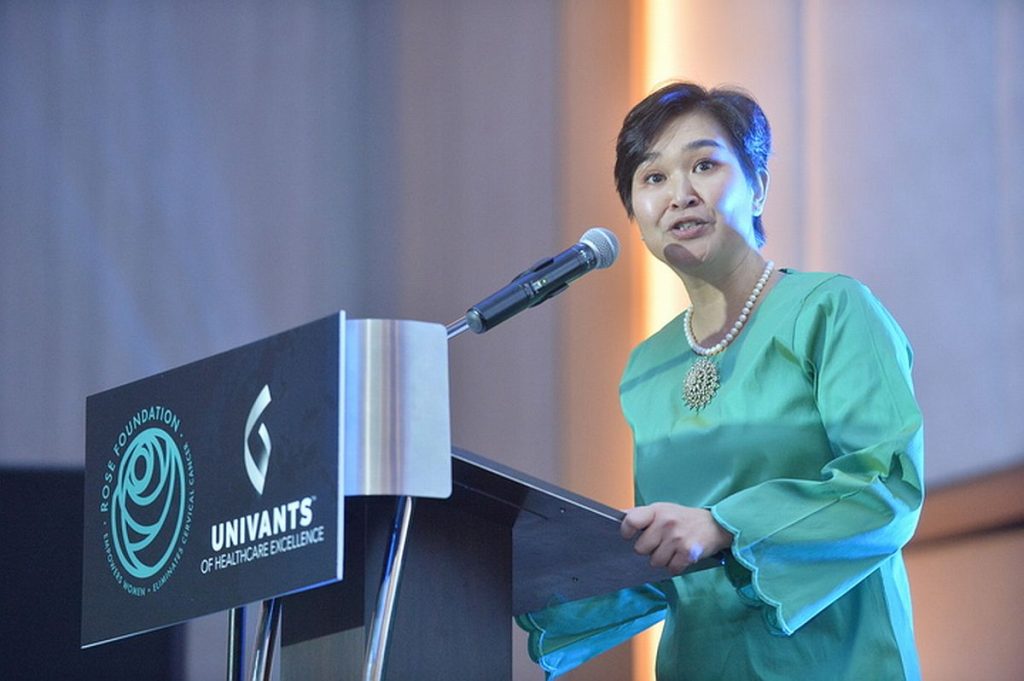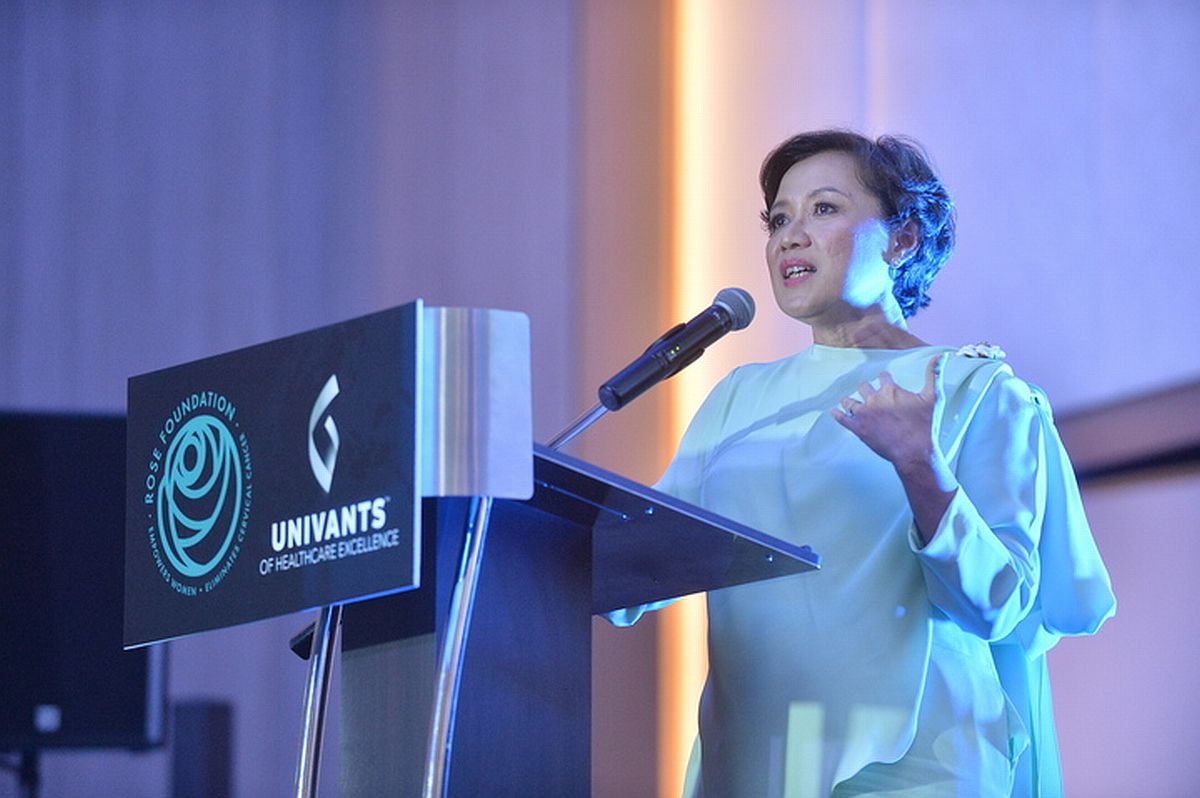KUALA LUMPUR, August 25 – Eliminating cervical cancer requires Malaysia to invest just RM1,200 per woman for HPV vaccination and testing, ROSE Foundation chairwoman Prof Dr Adeeba Kamarulzaman said.
She pointed out that Australia was on track to eliminating cervical cancer by 2035 – which would be the first country in the world to eliminate the disease if its 2035 target is achieved – because of “political will”.
“We often think of health as a cost; we should be thinking about health as an investment,” Dr Adeeba said in a speech last Friday at UNIVANTS of Healthcare Excellence’s award dinner for ROSE Foundation here.
“If we invest in this RM300 vaccine – remember, WHO (World Health Organization) says one dose is enough now – and if we invest in the screening, which totals about RM300 a test; a woman may need it, at the most, twice or three times in her lifetime, that’s RM1,200 ringgit for the life of a woman.
“Don’t tell me you don’t value our lives – at RM1,200.”
The WHO said in April 2022 that a single dose of the HPV vaccine offered solid protection against HPV – the virus that causes cervical cancer – that is comparable to two or three-dose regimens.
Dr Adeeba said “there really is no excuse” not to eliminate cervical cancer, except for investment, political will, and partnerships.
“So if we can think and talk about eliminating HIV – which is a far more complex disease without a vaccine, without a cure – we can definitely do this,” said the HIV expert.
“We owe it to all the women in this country. We owe it to all their children and their husbands and the communities around them.”
According to the Malaysia National Cancer Registry Report 2012-2016, the latest data available, cervical cancer is the third most common cancer among Malaysian women and among the top 10 cancers across gender in the country.
Only 12.9 percent of women in Malaysia take a pap smear once in their life, usually after giving birth, while the WHO’s target is 70 percent HPV screening coverage for women aged 35 to 45.
The Covid-19 pandemic severely disrupted Malaysia’s school HPV vaccination programme, due to disruptions in global supply and a six-fold increase in the global price of the HPV vaccine last year. Health Minister Dr Zaliha Mustafa told Parliament last June that more than 330,000 Form One female students from the 2020 to 2022 cohorts have yet to receive the HPV vaccine.
ROSE Foundation founding trustee and medical technical advisor Prof Dr Woo Yin Ling posted on X last Tuesday that the Ministry of Health was moving towards a single-dose HPV vaccination schedule for Malaysia, in line with the WHO’s recommendation. “Naturally, there would be challenges, but Malaysia is taking the right steps forward with an equity in mind,” she said.
Program ROSE Linked 91% Of HPV-Positive Women To Care

Program ROSE by ROSE Foundation won one of three 2022 awards by Univants of Healthcare Excellence, a global award programme created by US-based medical devices and health care company Abbott.
ROSE Foundation is the first Asian organisation to become one of the top three winners of this prestigious award. The foundation which first started as a research programme between University Malaya and the Australian Centre for the Prevention of Cervical Cancer as pilot ROSE became an independent foundation tasked with carrying out Program ROSE which focuses on serving the under-served and under-privileged communities.
As of last Wednesday, more than 25,000 women have been screened through Program ROSE using self-sampling HPV testing since 2018.
According to Univants’ award metrics, about 5.6 per cent of the women screened as of last February 28 tested positive for HPV, of which an astounding 91 per cent were linked to care.
Program ROSE also provided earlier diagnosis, where four individuals with previously unknown early stages of HPV-related cervical cancers and an additional 194 individuals with previously unidentified precancers were identified and linked to care.
Two per cent of women screened under Program ROSE had cervical lesions treated with simple procedures based on early detection. This translated to a reduction in cervical cancer and deaths by approximately 15,900 to 17,800 cases, and 9,700 to 10,600 deaths by 2070, respectively, said Univants, citing a 2021 study.
In a 2019 interview with CodeBlue, Dr Woo said Program ROSE was envisioned to ease HPV screening for women with a self-sampling method, as opposed to pap smears that are generally more uncomfortable.
The HPV test is also more sensitive than a pap smear and only needs to be taken twice or thrice in a lifetime. Those who take the test are registered on Program ROSE’s registry.
Crucially, to ensure follow-up, HPV test results are sent to the woman’s phone in just three weeks, as opposed to three months for results from a pap exam at a government clinic (if results are abnormal; public health clinics usually don’t inform the woman if the test result is fine). For Program ROSE, if test results are abnormal, the woman is referred to a government hospital.
Woo: Cervical Cancer ‘End Game’ Is ‘The End Of The Beginning’

Dr Woo said in a speech at the UNIVANTS of Healthcare Excellence’s award dinner that Program ROSE, backed by scientific evidence and utilising design thinking and digital technology, could now reach and screen women for HPV with just a swab and a mobile phone.
The cervical cancer programme, she said, combined learnings from different countries, particularly Australia, in innovating local health solutions.
“It’s about turning ad-hoc screenings into a seamless journey for women, ensuring that women who need it most are linked to care,” said Dr Woo, who is also a consultant obstetrician and gynaecologist at University of Malaya.
“But beyond this award-winning cervical screening programme, Program ROSE is really a love story. Program ROSE was conceived, delivered and nurtured by individuals who love this country and who love women closest to them.
“Over the years, so many have generously contributed in one way or another. And then you ask them why. Most of them will say, it is a meaningful way to give back to the country. They also understand that by contributing to Program ROSE, they’re protecting someone’s mother, sister, wife, and daughter. It has always been and will always be putting women at the heart of the programme.”
The award dinner was attended by a few lawmakers and politicians who have supported Program ROSE or worked on cervical cancer, such as Youth and Sports Deputy Minister Adam Adli, Subang Jaya state assemblywoman Michelle Ng, former Permatang Pauh MP Nurul Izzah Anwar, as well as former Petaling Jaya MP Maria Chin Abdullah.
ROSE Foundation has just 11 staff members.
“The team at ROSE Foundation prides itself with building relationships – relationships with the communities we serve and partners that we work with. It is about our collective action to achieve the right goals for the right reasons,” Dr Woo said.
“Working in silos will get us nowhere, but together, we can do great things.”
She noted that Program ROSE has screened more than 25,000 women and reached 200 communities, spanning from Kedah to Sabah.
“You and I stand here, at this moment in history, when you have the opportunity but also the responsibility to do something to end cervical cancer so that our future generations will never have to deal with this again,” Dr Woo said.
“Today, I invite you to be part of this end game. While many consider what we want to achieve as impossible, let it just be milestones waiting to be accomplished. Ladies and gentlemen, I quote Winston Churchill, ‘This is not the end. It is not even the beginning of the end. But it is, perhaps, the end of the beginning’.”








